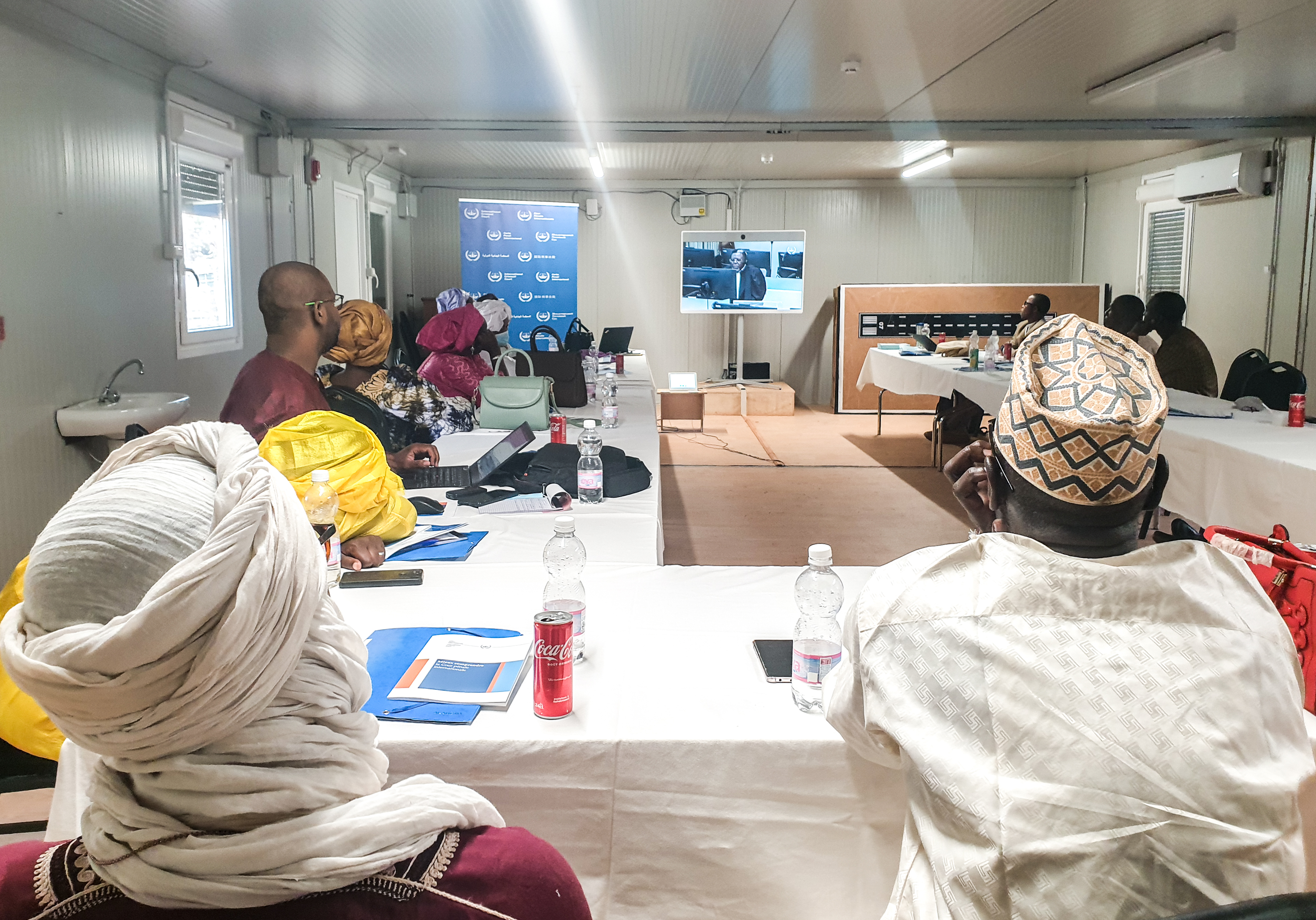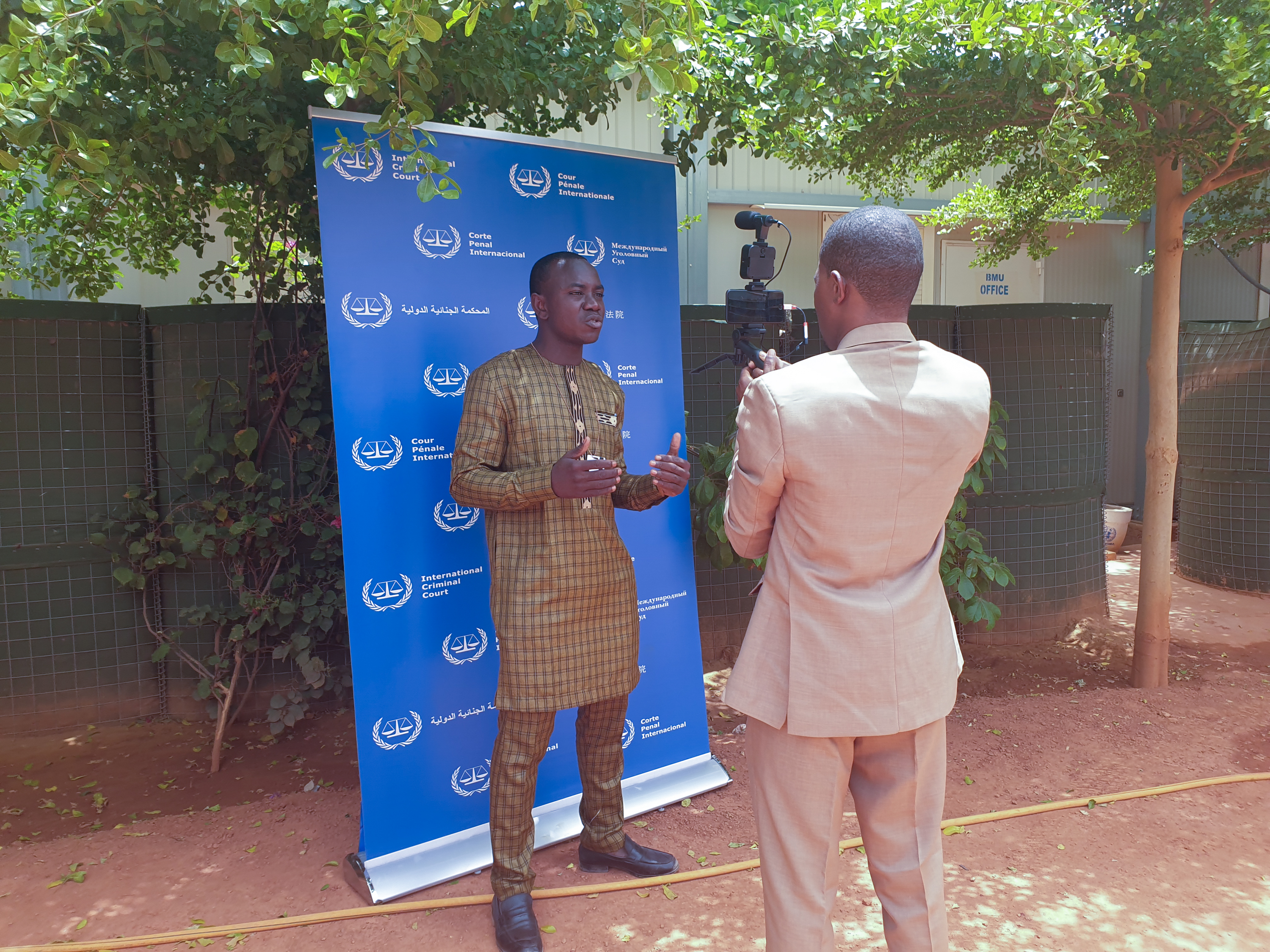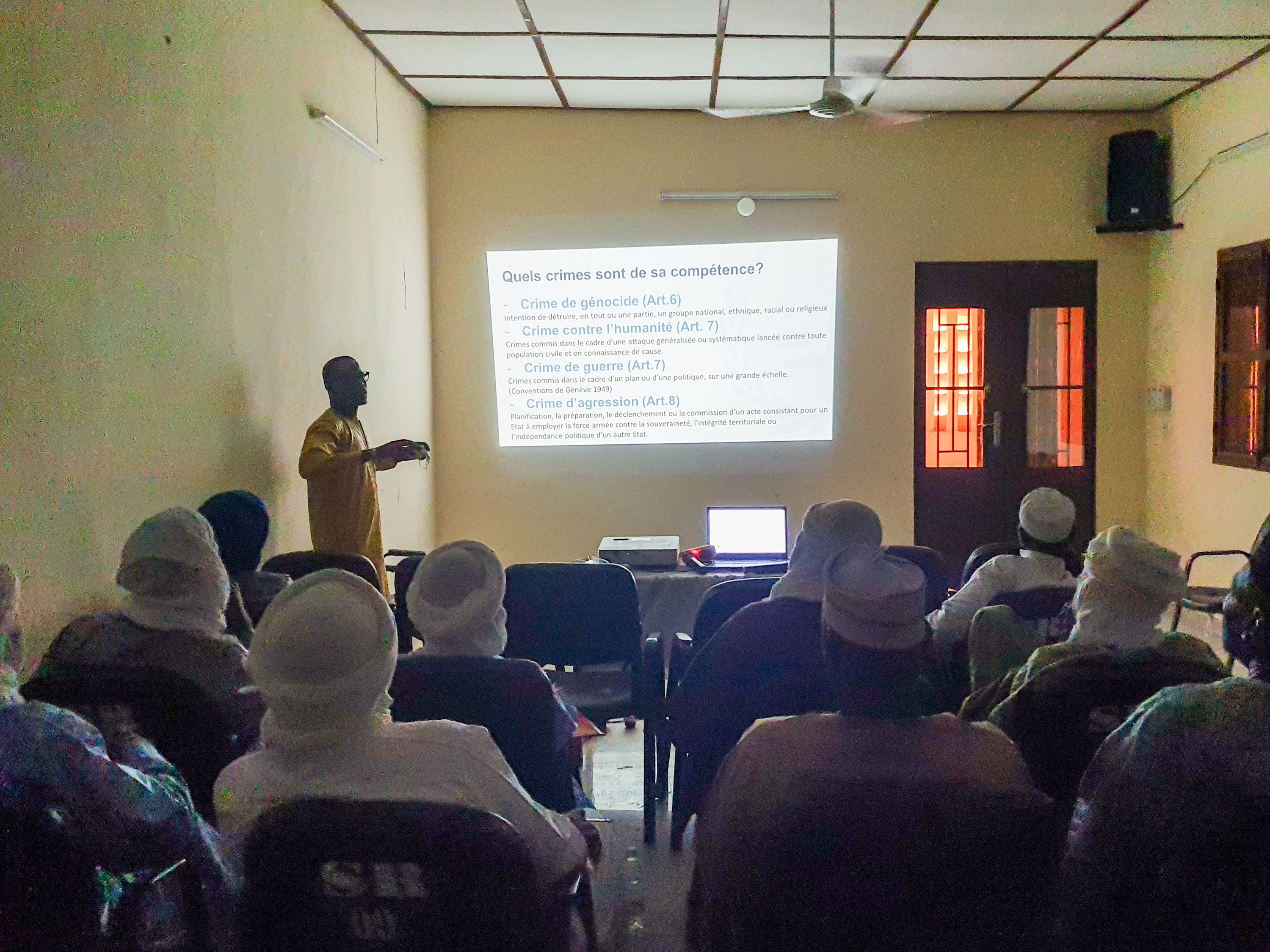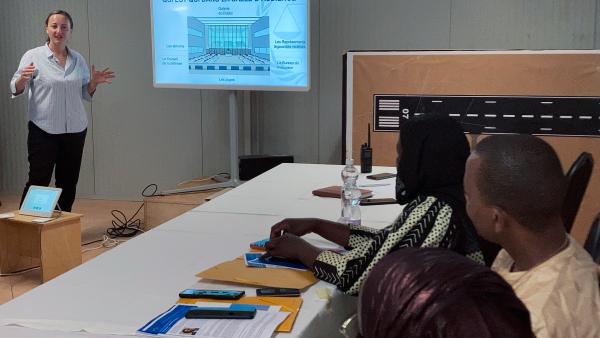
The ICC and the communities of Timbuktu meet: a first in the fabled city
With Mohamed Salaha
“Timbuktu, fabled city of mystery, renowned seat of learning, city of the 333 Wali (saints) …”. A city where I was born and raised, where I attended high school. A city that gave me everything and to which I am indebted; a city I visit frequently. After a year’s absence, I am back, but this time with two colleagues. I am back, not as an ordinary citizen on a trip home, but as a new recruit to the International Criminal Court (ICC) with a daunting task to accomplish: a ten-day public awareness mission about the work of the Court in Mali. What a challenge! It is an incredible honour for me, a son of the medina, to be part of a mission of international civil servants to my home turf; I am steeped in its culture and know how to reach every section of the population.
This is also the first time that an ICC outreach team has met the communities of Timbuktu who bore the full brunt of the occupation at the hands of Ansar Eddine and Al-Qaida in Islamic Maghreb. The Court is now trying the grave crimes that were committed then.
The Court’s outreach team has been active in Mali for several years, raising public awareness of the mandate of the Court. It holds information sessions with the various communities to give Malians a better understanding of the ICC’s work and the cases related to the situation in Mali − the Al Mahdi and Al Hassan cases. Our public awareness work is aimed at civil society, the authorities, the media and schools among others.

During our time in Timbuktu, my local knowledge and strong ties gained us access to the authorities of the city and their support for our initiatives. On the first day of the mission, we had no problem meeting the authorities to explain why we were in Timbuktu: to inform the population about the Court and the cases concerning Mali. After our brief courtesy visit to their premises, they agreed to support our mission.
Accomplishing the mission was challenging but exciting. All of our activities in the city of the eminent scholar Ahmed Baba were a resounding success. Despite the heightened insecurity in the area and the terrorist threat, we were able to carry out our activities safely, with security support from MINUSMA, the United Nations stabilization mission in Mali.
To talk about the ICC, the Al Mahdi judgment and the Al Hassan trial is not without risk. The armed groups’ sleeper cells may still be present in or around Timbuktu. So we had to remain very vigilant when preparing the activities.
Timbuktu stands at the gateway to the desert, under the scorching sun and sweltering temperatures. It is designated as a red zone in travel advisories. Our outreach mission to Timbuktu was meticulously prepared for over a month. To ensure representative and inclusive participation, I drew on my experience as a son of the city and my in depth knowledge of local civil society, when identifying participants for meetings. This was appreciated by Timbuktu’s interim authorities who attended one of the meetings: “The target audience was suitable and the Timbuktu Region was well-represented in this room. Everything that has been said in this room will be conveyed to the grassroots.”
As a result, during the 10 days, we met many groups and different communities − the media, religious leaders, civil society groups, among others − to discuss the ICC.

Satisfied participants
Among civil society, we met the Christian minority of the city of Timbuktu, where 99% of the population is Muslim. In the course of our visit, we also met other religious leaders at other meetings. Leaders of Christian groups came and spoke freely with us about the Defence’s presentation of its evidence in the Al Hassan case. They came to meet us with high expectations, curiosity and excitement. Before our meeting began, one of the pastors said: “It is the first time that we are meeting a delegation from the ICC and we are eager to hear what you have to say”. On the agenda were screenings of footage from the hearings in The Hague, information sheets on the Al Hassan and Al Mahdi cases and discussion sessions to enable the participants to understand developments in the hearings.
The description of the situation in Timbuktu during the armed groups’ occupation in 2012 by former Prosecutor Fatou Bensouda in her opening statement in the Al Hassan case made a deep impression on one of the pastors. The participants were also able to acquaint themselves with how witnesses are protected and the hearings are held. However, some said they were shocked at the “good conditions” in which the accused are held at the detention centre in The Hague.
I am proud of what our team accomplished during this mission and its impact; it has addressed the concerns of those who had misunderstood the work of the Court in Mali. It was rewarding to be part of this team who braved the insecurity to get closer to the population of Timbuktu.

At the end of one of our meetings, a participant approached me and said: “Today the ICC gave us a platform to express ourselves. We are pleased and we thank you.”
Upon these remarks, I was filled with even more pride about my work. I said to myself that we are giving a voice to those who need it most, to those who must be heard.
